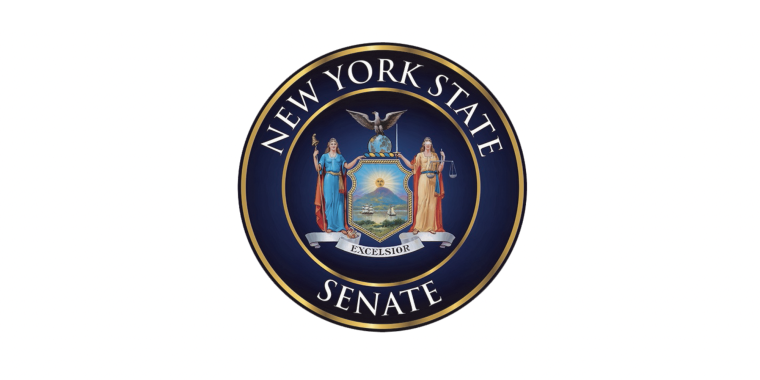
Statement from Senator Liz Krueger And Assembly Member Jo Anne Simon On Governor's Actions Related To Con Ed Rate Hike Proposal
February 11, 2025

Albany – Senator Liz Krueger and Assembly Member Jo Anne Simon, sponsors of the NY HEAT Act, released the following statement today regarding the announcement from Governor Kathy Hochul that she has sent a letter to Public Service Commission Chair Rory Christian urging him to reject Con Ed's recent rate hike proposal:
"We are glad to see Governor Hochul taking Con Ed's most recent rate hike proposal seriously, and urging action from the Public Service Commission on rising rates across the state. 1 in 7 New York households are two months or more behind on their energy bills, and 1 in 3 households pay more than 6% of their income on energy costs. It is an affordability crisis that demands fundamental changes, not just playing whack-a-mole with every proposed rate hike. That is why we carry the NY HEAT Act, which Governor Hochul has strongly supported in the past, and that's why we believe NY HEAT must be included in this year's budget.
"Con Ed's rate hike proposal is a perfect example of why NY HEAT is needed. Con Ed's proposal includes almost $1 billion of spending every year to repair aging, century-old gas infrastructure and expand the utility gas system. Those costs are paid entirely by ratepayers, and they only serve to trap us more tightly into an unaffordable and dirty status quo, instead of making smarter, more cost-effective investments in alternatives that give customers the opportunity to benefit from more affordable, more comfortable, cleaner and healthier options.
"If we want to make real progress on reining in rate increases for all New Yorkers, we must pass NY HEAT this session."
###
BACKGROUND:
NY HEAT would save ratepayers billions of dollars every year on avoided gas infrastructure costs, help households transition away from dirty and expensive methane gas, and facilitate the attainment of the Public Service Commission's goal of protecting residential customers from paying more than 6% of their household income for energy bills, which could save 25% of all New York households - those that struggle the most to afford their energy bills – an average of $136 each month, cutting bills nearly in half.
As of September 2024, approximately 1 in 7 households in New York were two months or more behind on their energy bills. This crisis is impacting more than 1.2 million families, who are collectively in debt more than $1.3 billion dollars to utilities, which are projected to charge New Yorkers 18% more for heat this winter, even though the price of gas itself is going down.
The Home Energy Affordable Transition Act, also known as the NY HEAT Act, will stop the expansion of New York's outdated and dangerous fracked gas system, saving all ratepayers billions of dollars every year, and saving the 1 in 4 New Yorkers who struggle to pay their energy bills an average of $136 every month.
The gas system status quo is both unaffordable and bad for the climate. Currently, ratepayers are forced to subsidize expansion of the gas system, spending over $200 million each year because of the "100-foot rule." Every new mile of gas pipeline costs an average of $3-$6 million – $60,000 per customer on that line – all subsidized by existing ratepayers. NY HEAT will end those subsidies.
The NY HEAT Act will also free New Yorkers from the gas mandate (also known as "the utility obligation to serve gas"), an antiquated state law that locks utilities, and consequently the vast majority of New Yorkers, into the dirty, expensive, aging gas system for heat. Because of the gas mandate, a single home that wants to stay on the gas system can prevent an entire neighborhood from having the opportunity to receive cheaper, cleaner heating alternatives from their utility. The NY HEAT Act would require utilities to provide easy access to the most affordable and healthier heating options for their families.
Ratepayers are also on the hook for $150 billion in coming years to replace leak-prone pipes, an average of $35,000 for every gas customer in the state, installing infrastructure that must be phased out in less than 30 years. Under a recent three-year rate agreement announced by National Grid, customers in New York City and Long Island would see their gas bills increase by an average of nearly $30 per month in the first year, $14 per month in the second year, and about $20 per month in the third year. These rate increases are driven in part by nearly $5 billion in spending on new gas infrastructure. NY HEAT will end this wasteful spending.
By curbing expansion of the fracked gas system, the NY HEAT Act will also curb the utility rate hikes slamming New Yorkers across the state:
- After National Grid's latest 36% rate hike that began in September 2024, NYC and Long Island customers heating their homes with gas will pay $60 more per month on average by April 2026.
- As of this month, the average ConEd gas and electric customer will pay over $50 more per month.
- By the end of 2026, NYSEG customers in the Southern Tier will be forced to pay up to $40 more every month for gas and electricity than they did in 2023, and RG&E customers will see an average total monthly bill increase of $30.16.
- After hiking rates in July 2024 with the average Central Hudson customer paying an extra $30 every month for gas and electric bills, CenHud is now seeking another rate hike that would raise the average bill another $18.
- In December 2024, Governor Hochul's Public Service Commission approved National Fuel Gas's rate hike, increasing bills by $17, with average gas bills nearing $100.
- If O&R's proposal is approved by the State, Rockland County gas and electric customers will see an increase of 10% on their bills.
Pro-climate legislation that saves New Yorkers money is popular: 67% of Democrats, 47% of Republicans, and 55% of independents agreed the NY HEAT Act should have passed last session. The bill was also popular with 60% of upstate voters, 55% of union households, and across income groups. 74% of Black voters and 70% of Latino voters also wanted it to pass.
State action against climate change is crucial with Trump in office and vowing to go all-in on fossil fuels. 2024 was the hottest year on record, and New Yorkers experienced wildfires, flooding, and tornadoes. The NY HEAT Act will help New York fight climate change and protect New Yorkers from an unpredictable Trump administration by helping to stabilize heat and energy costs.
related legislation
Share this Article or Press Release
Newsroom
Go to Newsroom


